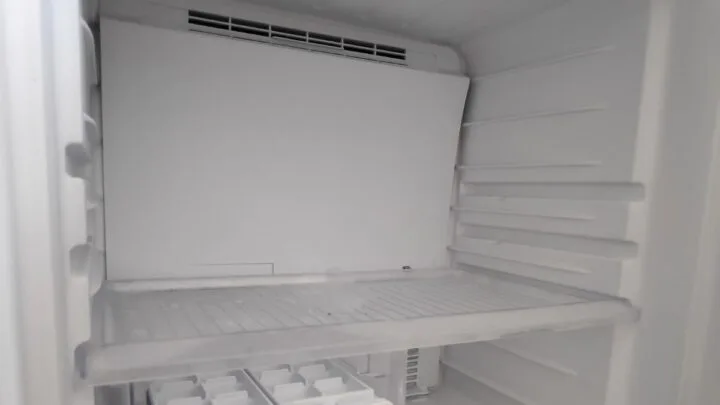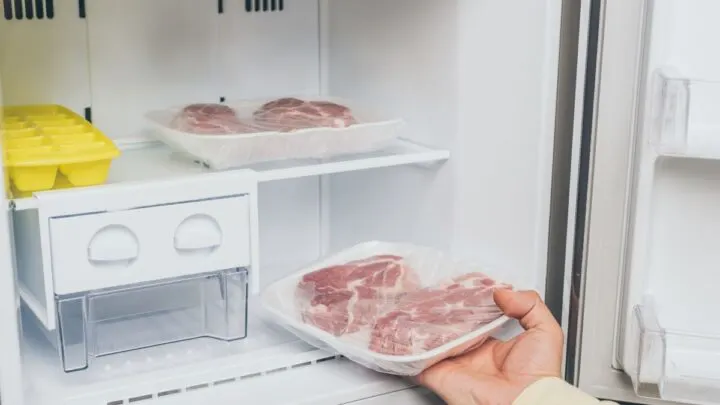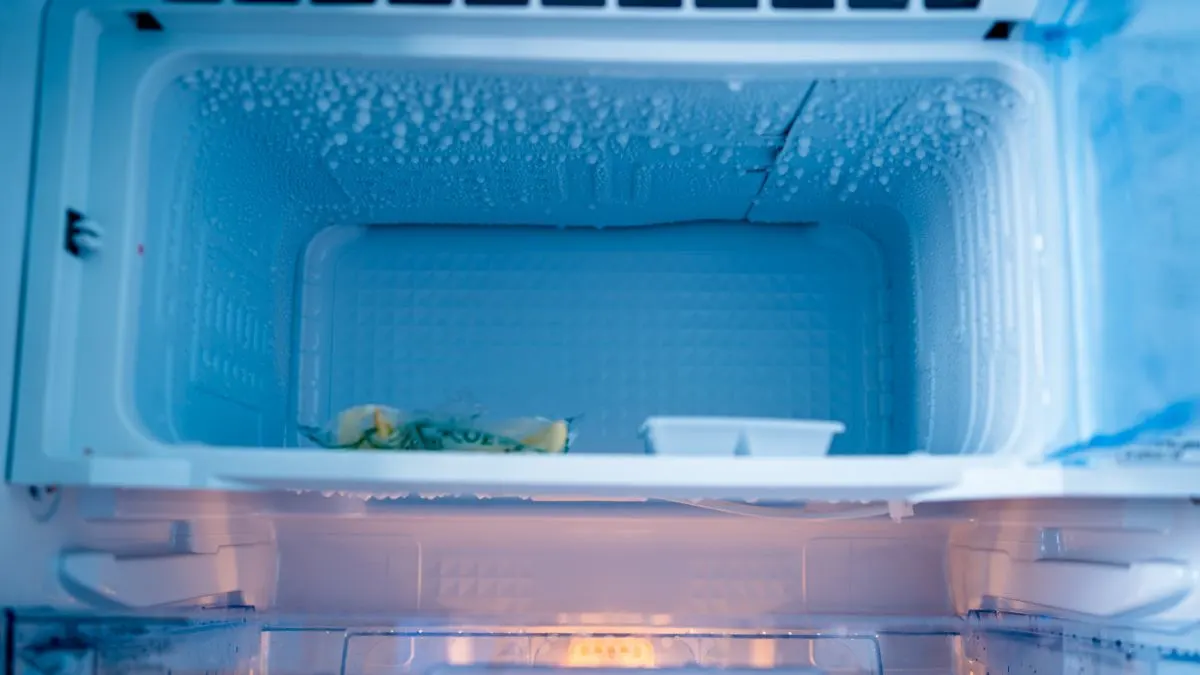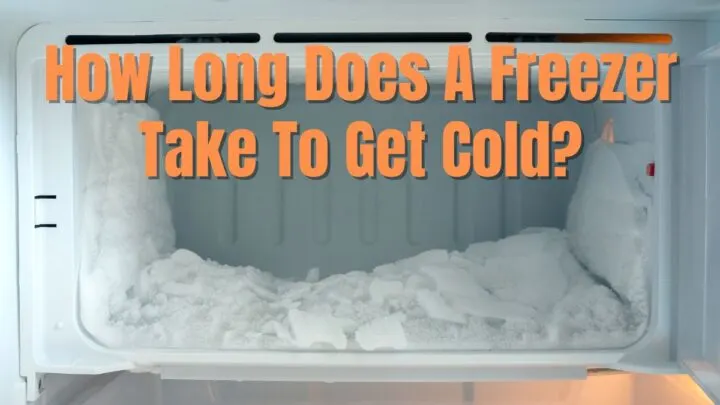Perishable food items like meat, dairy products, and fish can catch bacterial growth if it goes more than 2 hours at room temperature.
They need that cool, FDA-recommended 0°F i.e. -18°C found in a freezer, which is why knowing how long a freezer takes to get cold is critical.
Whether you purchased a new freezer, left the door open for long, or momentarily lost power, you should know how long to wait before you stock it with your groceries.
On average, freezers take around four hours to attain the optimal temperature that can preserve food for up to six months. Some freezers may take as less as two hours, while others need up to 24 hours to get cold.

How Long Does It Take To Reach 0°F?
Knowing how long it takes a freezer to get cold enough for your food is important.
However, there is a broad range around this time duration, determined by several factors such as the type of freezer, brand, model, size, surrounding temperatures, condition, and products inside.
If you have purchased a new freezer, you also need to account for how it was transported.
For example, transporting the freezer on its side disturbs the equilibrium of fluids such as coolant and water inside its frame.
To prevent damage to electrical components and leakage of compressor oil, allow the freezer to settle for up to 24 hours to help account for this.
If you are interested in knowing the freezing time of your particular model of freezer, this information is readily available on the manufacturer’s website.
Retailers like BestBuy, Walmart, HomeDepot, Target, and Lowe’s also carry this information.
Googling the model number, brand name, or serial number should take you to the “Installation Guide” or “Product Manual,” where you can scroll until you find the section on cooling time.
Is My Freezer Cool Enough for Storage?
The trial and error method of determining if your freezer is cool enough is not worth the risk of spoiling your food.
Given how crucial this information is, most freezers now come with a built-in digital control panel or thermostat that updates you on the inside temperature.
If that is not the case for your model, there are other ways to check your freezer’s viability but you should always wait a minimum of 4 hours before taking the first peek (24 hours if it is a freezer-refrigerator combo).
An appliance thermometer is cheap and lets you get a reading in less than 15 minutes. However, if you don’t own one, the ice cube test is a popular choice.
Fill an ice tray with water, put it in the freezer, and if it freezes within a few hours, your machine is good to go.
Factors Affecting Freezer Cooling Times
A four-hour average cooling time is not standardized.
Many variables such as the freezer’s type and where it is located decide how long it takes to reach 0°F.

Type of Freezer
A chest freezer (deep freezer) and an upright freezer are the two common types of freezers you will find in the market, each with unique cooling times.
While the former (chest) takes up to around five hours, the latter (upright) averages about four hours and twenty minutes.
Deep freezers are usually placed in garages and other warm areas, to store food for as long as possible.
Consequently, they maintain temperatures of about -4°F that allow prolonged storage but come at the cost of enhanced freezing time.
Anyone buying a freezer also often needs a refrigerator, sparking the rise of fridge-freezer combos that usually take up to 24 hours to cool.
If that is too long for you, waiting at least 12-16 hours before putting any food inside should be a given.
This is because it takes more time for the cool air to circulate through both the fridge and freezer sections.
Size
As is expected, the larger the freezer, the more time it will need to cool.
Measured in cubic feet of capacity, a reliable estimate is 1 hour per 1 cubic foot of space in the freezer.
An average of four hours discussed in this article falls back on the four cubic feet of freezers popular in the market.
Goes without saying, mini freezers take less than 3 hours to cool whereas larger deep freezers may need 6-10 hours.
Surrounding Temperature
This includes both the temperature of the room where the freezer is situated and the starting temperature before you plug it in.
If the freezer was transported in a truck on a hot summer day, simple physics is enough to explain why it would take longer than four hours to cool down to 0°F.
On the other hand, if the freezer is placed near sunny windows or in a hot room such as a garage or pool house, the hot surroundings will slow the freezing process.
A freezer in an air-conditioned room is bound to reach freezing temperature sooner.
Quality
If your freezer is taking way longer to cool than expected, you might need to inspect its quality. Besides the brand, age and condition are important variables.
Older models and used ones purchased on a low budget are less efficient than the modern ones.
However, maintenance is also key.
Faulty evaporator fan motors, thermostats, dusty coils, frosted evaporator coils, and leaky seal systems are common problems your freezer may encounter, prolonging its cooling time.
Getting it checked by a professional is highly recommended.
Products Inside
While you should never stock a new freezer with perishable items until it cools down to 0°F, a previously-stocked freezer cools faster than an empty one.
A freezer stocked at 80% retains cool air more efficiently, while the frozen food inside lends a helping hand to the machinery when it comes to cooling.
Speeding Up Cooling Time
If you are in a time crunch and have nowhere to store your frozen food, there is a lot you can do to accelerate cooling time.
This includes:
- Keeping the freezer door closed until the recommended 3-4 hours to minimize escape of air
- Ensuring appropriate voltage supply by plugging the freezer into an outlet instead of an extension overloaded with other appliances
- Turning the air conditioning in the room on to lower room temperature
- Cleaning the freezer with 2 to 3 spoonfuls of baking soda in a bowl of hot water upon delivery
- Putting in ice cubes or an ice block if the freezer has been cooling for a while

The Bottom Line on How Long It Takes a Freezer to Get Cold
While four hours is an acceptable estimate, how long a freezer takes to get cold is determined by various factors such as type, size, and location.
Understanding how long your model needs will not only help you preserve food when you first purchase it, but also will help during power outages.
Besides speeding up the freezing time now by the various methods prescribed above, you can also ensure the longevity of your freezer’s performance by maintaining it.
Defrost your freezer one or two times annually to prevent system overheating and clean your drain lines of anything clogging it.
You can maximize your freezer’s efficiency only if you know how long it usually takes to get things down, such as cooling.


